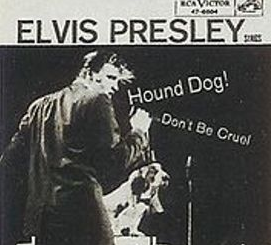You Were Always On My Mind by Elvis Presley Lyrics Meaning – Unpacking The King’s Timeless Lament of Love
Lyrics
Quite as good as I should have
And maybe I didn’t love you
Quite as often as I could have
Little things I should have said and done
I just never took the time
You were always on my mind
You were always on my mind
And maybe I didn’t hold you
All those lonely, lonely times
And I guess I never told you
I’m so happy that you’re mine
If I made you feel second best
Girl I’m sorry I was blind
You were always on my mind
You were always on my mind
Tell me, Tell me that your sweet love hasn’t died
Give me, give me one more chance to keep you satisfied
I’ll keep you satisfied
Little things I should have said and done
I just never took the time
You were always on my mind
You were always on my mind
In the pantheon of classic songs that stir the soul, few resonate as deeply as Elvis Presley’s rendition of ‘You Were Always on My Mind.’ This ballad, etched with the King’s velvety croon, has become an anthem for the repentant lover—a poignant exploration of regret and undying affection. It straddles the line between a haunting confessional and an ode, leaving listeners in a whirl of introspection about love’s often overlooked nuances.
But beyond its melancholic melody lie deeper threads of meaning that tug at the very notion of human imperfection and the longing for forgiveness. Decades since its first release, ‘You Were Always on My Mind’ remains a powerful testament to lost opportunities and the enduring echoes of love, reverberating through the chambers of countless hearts that empathize with its universal sentiment.
The Haunting Honesty of Regret: Peering Into Elvis’s Heartache
From the very first line, ‘You Were Always on My Mind’ exposes a brutal honesty that is both rare and arresting. The song’s narrative voice admits to fallibilities, expressing a raw sense of remorse over the failings that punctuated the relationship. In Presley’s delivery, there’s a tangible pain—a reflection of moments that cannot be reclaimed and a yearning to communicate what was once left unsaid.
Elvis masterfully emanates the dual sensation of regret and the persistent presence of love. This song is not just an apology; it’s a confession that even though the physical acts of love may have been absent, the emotional attachment remained undiminished. The specter of what could have been haunts every verse, making the song an ageless exploration of relationship dynamics.
A Symphony of Silent Sentiments – The Things Left Unsaid
The recurring theme of the unvoiced, the ‘little things I should have said and done,’ uncovers the human tendency to postpone expressions of affection. ‘You Were Always on My Mind’ conveys a universal truth: often, we take our loved ones for granted, forgetting to verbalize our deepest feelings. It’s a sobering reminder of the imperceptible moments that can make or break the fabric of intimacy.
The song urges listeners to reflect upon their own relationships, to contemplate the silent sentiments that have remained trapped within. Elvis’s portrayal underscores the profound impact of these unuttered words, suggesting that love is as much about the daily gestures as it is about grand declarations.
Dissecting the Heart’s Echo: The Song’s Hidden Meaning
Beyond its face value as a love ballad, ‘You Were Always on My Mind’ subtly addresses the existential ache for redemption. It’s a man’s quest to reconcile with his past—to reach across the expanse of time and mend the fractures with a simple, sincere acknowledgment.
It’s not just about a lover’s plea; it’s emblematic of humankind’s inclination to correct the paths we’ve once roamed with negligence. The song becomes a conduit for personal reflection, an agent for transformation as potent as any elixir of introspection. The King’s crooning becomes a call to amend not just romantic links, but the broader strokes of human connections.
The Enduring Echo of Memorable Lines
‘Maybe I didn’t treat you quite as good as I should have,’ sings Presley, etching what has become one of the most memorable lines of acknowledgment in music history. It’s a raw admission of neglect, delivered with a vulnerability that only Elvis could convey, transforming the simplest of confessions into a linchpin of lyrical genius.
As the song progresses, ‘Tell me that your sweet love hasn’t died’ pierces the listener’s heart, encapsulating the fear of love lost and the desperation to cling to its remnants. The line embodies the climactic point of the song’s emotional journey, emphasizing the perennial hope that underscores even the most penitent of heartaches.
The Unshakable Legacy of Elvis’s Achingly Beautiful Ballad
Elvis’s rendition of ‘You Were Always on My Mind’ has cemented its place in the annals of music and popular culture. It has transcended the boundaries of time and genre, remaining as relevant today as when it first graced the airwaves. The song’s ability to touch the deepest fibres of the human heart with its tender remorse and unabashed longing has made it a touchstone for love’s ebb and flow.
The legacy Presley left with this track is not merely one of melodious enchantment but also one of emotional literacy—a guidepost reminding us of the power of acknowledgment, the necessity of vulnerability in love, and the human capacity to reflect and seek reconciliation with those we hold dear. ‘You Were Always on My Mind’ continues to echo in the corridors of human emotion, a profound ballad that teaches, touches, and transcends.








